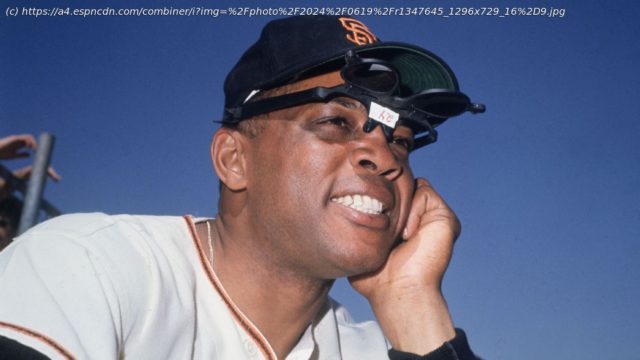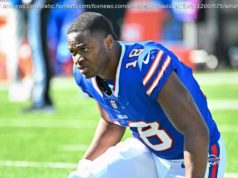Willie Mays could do everything on a baseball field. Those gifts made him one of the best — if not the very best — players who ever lived.
One of the greatest players of all time, Frank Robinson, was asked once if Willie Mays was the best player he had ever seen. Robinson got that annoyed look on his face and rolled his eyes, insulted that the question was even asked. After a pause, he answered: „Of course he is. He’s good as you want him to be. You can’t exaggerate how great he was.“
Willie Mays is the greatest center fielder ever, the greatest Giant ever and still is, 73 years after his debut, the greatest combination of power, speed and defense in the history of baseball.
„When he came to us in 1951′,‘ former Giants manager Leo Durocher said, „I’d never seen anyone quite like him.“
Major League Baseball had never seen anyone like him, and hasn’t since. Mays was Ken Griffey Jr., only better, and he preceded Griffey by 40 years. Mays won the National League Most Valuable Player in 1954 and 1965 and finished second two other times. He finished in the top six 12 times. He made the All-Star team 20 years in a row. He is, by most measures, the second-best all-around player in history behind the incomprehensibly great Babe Ruth. To those who separate the game by the breaking of the color barrier in 1947, there has never been a better player than Mays.
„I was in awe of him‘,‘ Hall of Fame catcher Johnny Bench said. „The first time I met him [at the 1968 All-Star Game], the day before the game, he whispered in my ear, ‚You should be starting the All-Star Game.‘ When he left, I couldn’t even speak for a short time. It was like, ‚Oh my God, Willie Mays just talked to me.‘ That’s how great Willie was.“
„With Willie, it was like Tiger Woods coming to your town, you just always expected him to win‘,‘ Giants Hall of Fame broadcaster Lon Simmons said in 2008. „The fans expected a miracle from Willie every day. And he just gave them a miracle every other day.“
„His athleticism set him apart‘,‘ Robinson said. „The athleticism of the Black player changed the game of baseball after 1947. And there was no better athlete than Willie Mays.“
Mays was born into that. His mother was a great athlete. His father was, too, a great center fielder. His son, Willie Howard Mays Jr., was so advanced growing up in Westfield, Alabama, that he played against 18-year-olds when he was 10. Mays played for the Birmingham Black Barons of the Negro Leagues when he was 15. In 1950, at age 18, he signed with the New York Giants for $15,000 (he bought a car but couldn’t drive it, so it became a car that his community drove). He spent two years in the minor leagues, then joined the Giants in May 1951 just after turning 20 years old.






